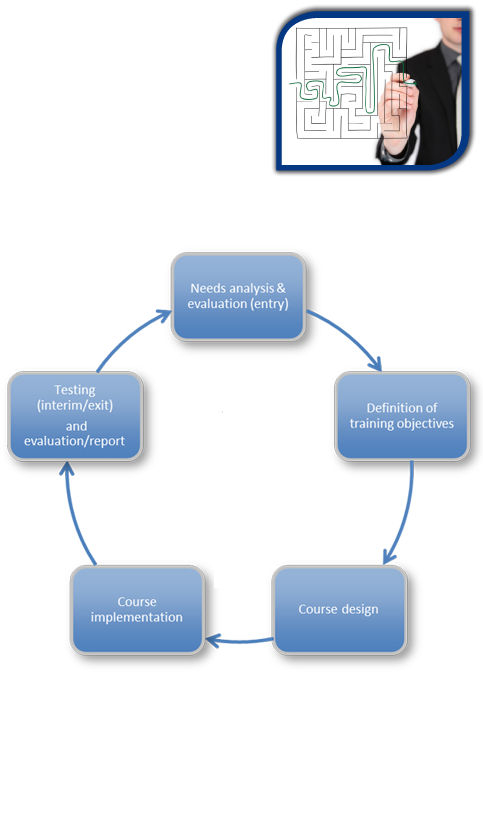Needs analysis and evaluation
Initial testing serves to create a profile of the candidate. What are his or her professional needs Which skills are the priority for development? The input of the company is crucial here.
Needs analysis and evaluation
Does the candidate need to develop functional skills for presentations, meetings, negotiations, social contexts, conference calls etc. ? Are these objectives consistent with the current level of competence and the time/resources allocated by the company? The duration and intensity of the course should reflect the agreed objectives.
Course design
At this stage we can begin designing the course. What is the right mix of materials? Which specific materials can be created for the client? Which media are most appropriate? Our Course Co-ordinator will work with other colleagues in ensuring the right balance of input.
Course implementation
Individual or group? Intensive or flexible? Short, medium or long term? A range of alternatives exists to cater for different needs. Short intensive training is effective for those with immediate and urgent priorities, while ongoing flexible training will consolidate and develop skills in the long term.
Evaluation/reporting
Interim tests reflect input up to that point in the course. Exit testing measures overall progress. Testing can also be a free-standing service, for audit purposes. Final reports give qualitative and quantitative assessments of progress made, and set the foundation for continuous training where appropriate.

